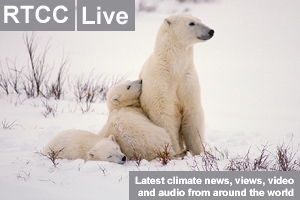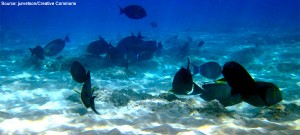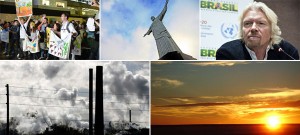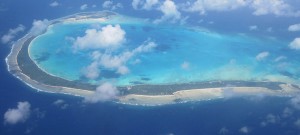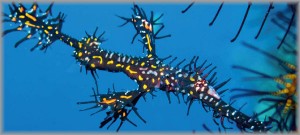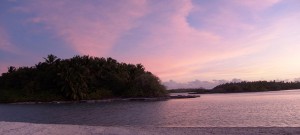Oceans
Photo of the week #29: The Galapagos islands’ unique position for monitoring climate change
The Galapagos Islands are home to some unusual inhabitants threatened by climate change but the isle’s unique placement to study global environmental change is less well known.
Oceans, forests and ecosystems continue to soak up rising man-made carbon emissions, for now, say scientists
New research shows that while a slow down of carbon absorption of the planet’s ecosystems is projected, today they continue to keep up with the rising levels of emissions being released into the atmosphere.
Climate Live: Drought ‘the new normal’ in the US, EU ponders desert energy investment and maths converts a climate sceptic
Today’s top headlines: Massive blackout leaves 300m Indians with no power, the EU could provide some of the funding for the $500bn Desertec project and scientists say the Southern Ocean dominates CO2 storage.
Scientists discover how carbon is stored in the Southern Ocean
New research examining how the Southern Ocean absorbs CO2 reveals that winds and currents create pathways for carbon to be stored in the deep ocean regions.
Could climate change answer lie 20,000 leagues under the sea?
Ocean geoengineering technique to grow and sink phytoplankton blooms gets thumbs up in new study.
Would a CCS leak be as damaging as the BP Gulf of Mexico oil disaster?
Carbon Capture and Storage still remains on the of the most viable technologies to aid climate change mitigation, but what would be the impacts of a CO2 leakage in the world’s oceans?
A week in climate change: Five things we learnt
In a Rio+20 special, we take a look back over at the news over the last seven days from both the Earth Summit negotiations and beyond to find out what we can learn from events this week.
Good news: We have four environmental winners from Rio+20
What environmental frontiers emerged as the winners from the Rio+20 outcome document?
Rio+20: What does the Earth Summit’s outcome mean for climate change?
The Rio+20 document is jam packed with caveats, ifs, buts and maybes. So what concrete action does it contain, and what implications are there for action on climate change?
Rio+20: The underwater lab that could unlock the secrets of the ocean
A 58m sub-sea laboratory could drastically increase the length of time that scientists can observe the oceans.
World leaders must avoid empty ocean commitments at Rio+20, say researchers
New research ahead of the Rio+20 summit on sustainable development has found that commitments made over the last 20 years to protect fisheries have had little success.
Ocean warming a largely man-made phenomena, say researchers
New research finds that the warming of ocean temperatures over the last 50 years has been largely due to man-made greenhouse gases.
Callum Roberts: Sustainable fishing can feed a growing world population
RTCC continues analysing the latest work by Professor Callum Roberts – a comprehensive look at the state of the world’s oceans.
‘Ocean of Life’: Ocean biodiversity suffering at hands of alien invaders
Ahead of the release of ‘Ocean of Life’, the work of Professor Callum Roberts, professor of marine conservation at the University of York, RTCC takes a closer look at some of the book’s claims.
Coastal seagrass could store more CO2 than forests
New research in Nature Geoscience, find that coastal seagrass has the potential to be vital carbon sinks and therefore part of the solution to climate change.
Cartoon #2 – Fishing in the desert
As part of the World Meteorological Organisation Calendar, cartoonist Patrick Chappatte shows the importance of protecting the world’s oceans.
Photo of the week #12: The threat of warming oceans
This week’s photo of the week comes from the ocean depths in Bali’s coral reefs.
Climate change warming oceans for more than a century
New study comparing modern temperature records with data from 1870 suggests the world’s oceans have been warming for more than 100 years.
New research finds some corals could survive climate change
El Nino warming cycle survivors give new clues and improve prospects for some coral environments.
Blue Marine Foundation: protecting the oceans from degradation
Described as the ‘blue heart’ the planet, Marina Vaughan of the Blue Marine Foundation asks how much of it would you protect?
